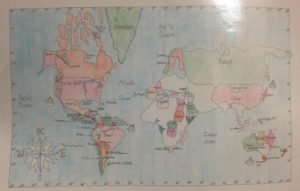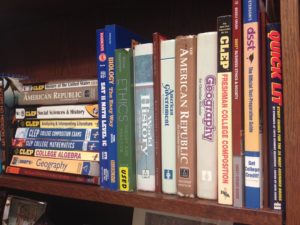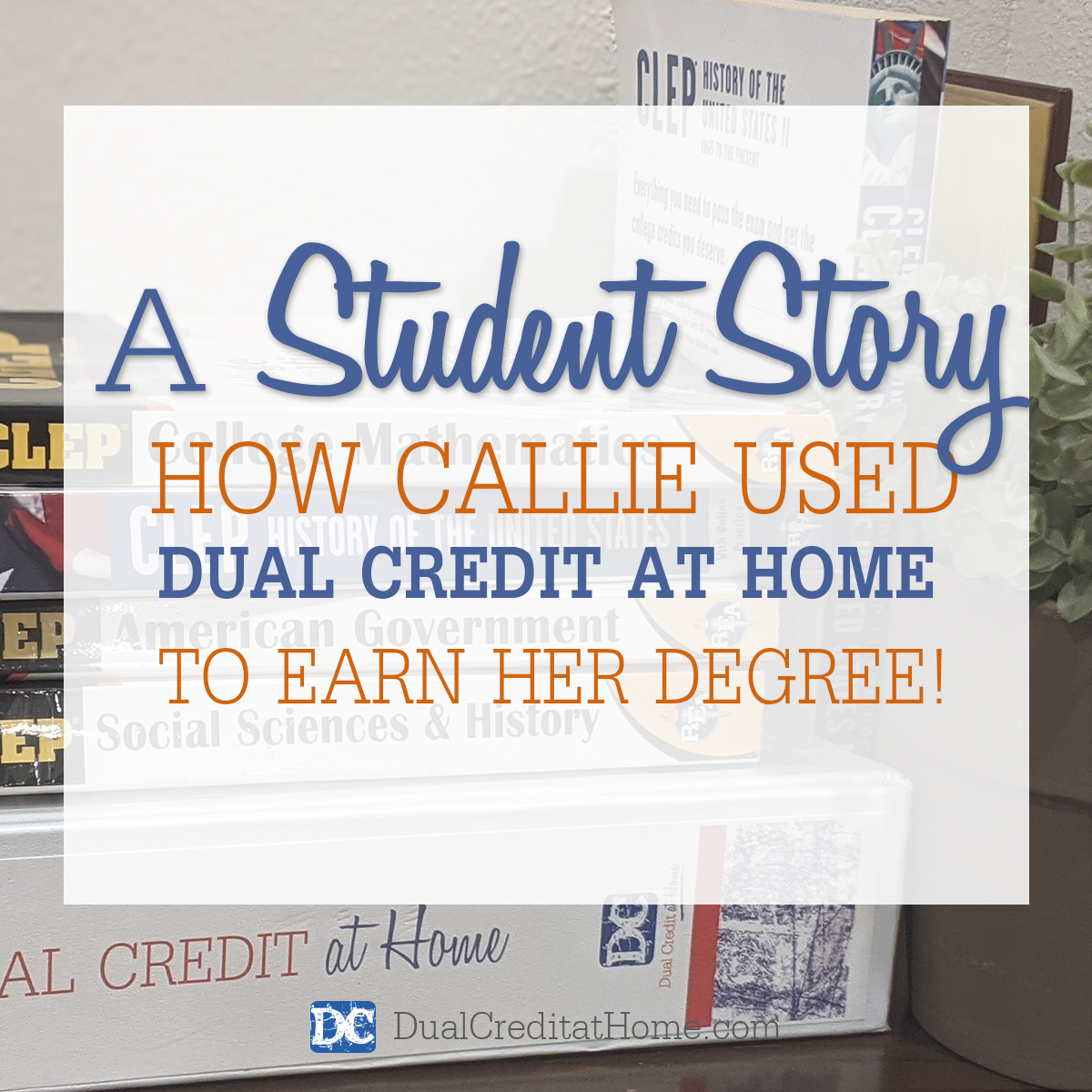Often someone will ask what curriculum we use or have used with our own kids. I’m happy to list some of it here and let you know how we’ve tweaked it so that it fits our family better. Every student has different learning styles and passions, so be creative and flexible and find what inspires learning for your child!
PreSchool, Kindergarten, and Elementary Age
We haven’t used any preschool or kindergarten curriculum. We simply start with Rod & Staff Reading and Phonics, generally around age 5. We had a couple of children that were late readers so for them we switched over to “How to Teach Your Child to Read in 100 Easy Lessons.” Then I switched them back to Rod & Staff because I wanted them to learn phonics and spelling rules.
I also like Rod & Staff’s handwriting instruction and elementary English books.
For elementary math we used a Bob Jones Grade 1, 2 or 3 math workbook. When they could read well we started Saxon 5/4. Although when they hit multiplication we often had to back up a few lessons, memorize the times tables, and start again.
Just this summer I discovered the Picture Smart Bible, and I wish we’d had that all along. I highly recommend it! We also like shepphardsoftware.com for geography. I think every student should know the world’s countries and capitals, along with the major mountain ranges and rivers. Years ago we did a program called Mapping the World By Heart. Here’s a pic of the world drawn from memory by one of my kids at age 10! My younger kids could not do this right now, so I think it’s time to pull it out and do it again!
Science as an elementary subject can be easily enjoyed using any of Apologia’s books, library books, household items, etc.
Junior High/High School
Age starts to kind of blur around this time as far as who can or should study what subjects. Some kids are ready to move right on into a higher level of study at an earlier age, and some just aren’t, which is perfectly fine! CollegeBoard requires a student to be 13 years old in order to purchase a CLEP exam, so we let our kids start accumulating college credit at that age.
Foreign Language & Math
We’ve used Rosetta Stone for foreign language and supplemented that with a Continuing Education class at Rice University and with Berlitz Language School. We also like Home School Spanish Academy. One daughter has Skyped with a language instructor in Guatemala, and it’s been a good experience for her.
 We’re pretty loyal to Saxon for math, and Khan Academy is a great online resource. One of our older daughters completed Algebra I, but then got a professor’s approval to take an online college Statistics class without the College Algebra requirement being met. She made an A, which is proof that determined students can do an amazing job self-teaching! Our kids typically complete Algebra I (and sometimes Algebra II and higher) and then self-teach and pass the CLEP College Mathematics exam.
We’re pretty loyal to Saxon for math, and Khan Academy is a great online resource. One of our older daughters completed Algebra I, but then got a professor’s approval to take an online college Statistics class without the College Algebra requirement being met. She made an A, which is proof that determined students can do an amazing job self-teaching! Our kids typically complete Algebra I (and sometimes Algebra II and higher) and then self-teach and pass the CLEP College Mathematics exam.
History & Writing
For history we like Bob Jones textbooks (American and World), along with lots of “real” books and biographies, historical fiction, etc. Passing both U.S. History CLEP exams and the Social Sciences & History CLEP exam earns enough history credit for high school. We do like to prepare for and pass the Western Civilization I and II CLEP exams for “easy” college electives, and I award high school world history credit for them.
I’ll be the first to admit my failure when it comes to writing – with my older kids at least, but I am trying to do better with the last three. Our oldest son asked us “Do you know where I learned to write?” His answer was “During the first year of law school.” Sorry about that! I mistakenly thought writing skills came naturally with age. Surely all our home schools have a weakness, and ours was definitely writing.
Science, Current Events, & Good Books
Apologia’s science books give kids a great science foundation. The biology book particularly does a great job preparing the kids to pass the CLEP Natural Sciences exam.
Subscriptions to The Wall Street Journal, The Economist, etc., over the years keep us up-to-date with current events, etc. Our kids read good books such as Do Hard Things by Brett & Alex Harris, Kisses From Katie by Katie Davis, Crazy Love by Francis Chan, etc. (These books, and many like them, are included in Dual Credit at Home’s optional Extra Mile Assignments.)
Speech/Debate & College Basics
Over the years our family has participated in speech and debate events through NCFCA. This was always a tremendous experience for us – the kids loved the competition, the club experience, and knowing a subject (like foreign policy) and being able to speak well.
Music, some sports, choir, martial arts . . . we’ve taken advantage of extra-curricular activities always trying to keep a good balance when it comes to the time and money involved.
Our high school kids actually do more college work than high school work. We can’t justify doing four years of core subjects and then have them do two more years of the same for college credit. So during high school we let them study their “basics” (English, math, science, history, government, geography, etc.) at the college level and take the corresponding college-level exam (CLEP, DSST, GRE, etc.). We give them high school credit when they successfully complete a subject, and they earn college credit when they pass the official exam. Download this free PDF to see what dual credit looks like on a transcript.
So our high school core subjects are all completed once a student passes these particular college-level exams: English Composition, College Mathematics, Natural Sciences, United States History, Geography, Humanities, Literature, Social Sciences & History (which covers world history), Introduction to World Religions, Business Ethics & Society, Public Speaking, and American Government. (Each state has their own requirements for home schooling, so make sure you fulfill those of your particular state.)
 These core subjects are rounded out with great books, music, sports, travel, plus other subjects that particularly interest one of the kids. When they have learned the course content and passed these 13 exams they have 57 college credits banked with CollegeBoard, and we’re comfortable awarding them their high school diploma. Our kids that plan on attending graduate school or law school complete their bachelor’s degree, usually within a year, by continuing to take exams in their major (particularly English/History or Business) and by taking the two Charter Oak State College required online classes – a cornerstone and a capstone course. (We’ve chosen Charter Oak State College for a couple of reasons: it’s fully accredited – allowing them to be accepted into great law or graduate schools, and it has a very generous credit-by-exam policy. Thomas Edison State College is another great choice. Students don’t need to go to either school’s physical location because all studying is done at home and testing done at a nearby testing center.)
These core subjects are rounded out with great books, music, sports, travel, plus other subjects that particularly interest one of the kids. When they have learned the course content and passed these 13 exams they have 57 college credits banked with CollegeBoard, and we’re comfortable awarding them their high school diploma. Our kids that plan on attending graduate school or law school complete their bachelor’s degree, usually within a year, by continuing to take exams in their major (particularly English/History or Business) and by taking the two Charter Oak State College required online classes – a cornerstone and a capstone course. (We’ve chosen Charter Oak State College for a couple of reasons: it’s fully accredited – allowing them to be accepted into great law or graduate schools, and it has a very generous credit-by-exam policy. Thomas Edison State College is another great choice. Students don’t need to go to either school’s physical location because all studying is done at home and testing done at a nearby testing center.)
Self-Teaching
We’ve observed that when one of our kids “self-teach” a subject they learn it more thoroughly than when they are taught a subject in a classroom at the junior college. In the classroom the professor has usually written the exams and teaches primarily what will be on them. When a student independently studies to take a college-level exam they have to study that subject in great detail because they don’t know (and aren’t being fed) what questions they will face on their computerized exam. Therefore, self-study is the exact opposite of “teaching to the test.”
Lesson Plans to Follow
About 1½ years ago I put our lesson plans into written Study Plans so my kids would have a written plan to follow each day. And as our kids have been using dual credit to earn their college degrees during high school, others have asked how it’s done. Dual Credit at Home is our way of helping other students work toward the same goal – debt free, regionally accredited college degree by high school graduation! Here’s a sample of a Study Plan that you can download for free. I’d love to work with your student if they’d like to earn high school and college credit at the same time!
I’d be happy to answer (or help you find answers) to questions you have about earning dual credit or credit-by-exam. Please feel free to contact me – I love sharing this option with other parents!
These 2 links would be helpful to you if you’re considering Dual Credit at Home…
How Dual Credit Works for Home Schooled Students (3 part article)
How to List Dual Credit at Home’s High School Credits on Your Student’s Transcript




